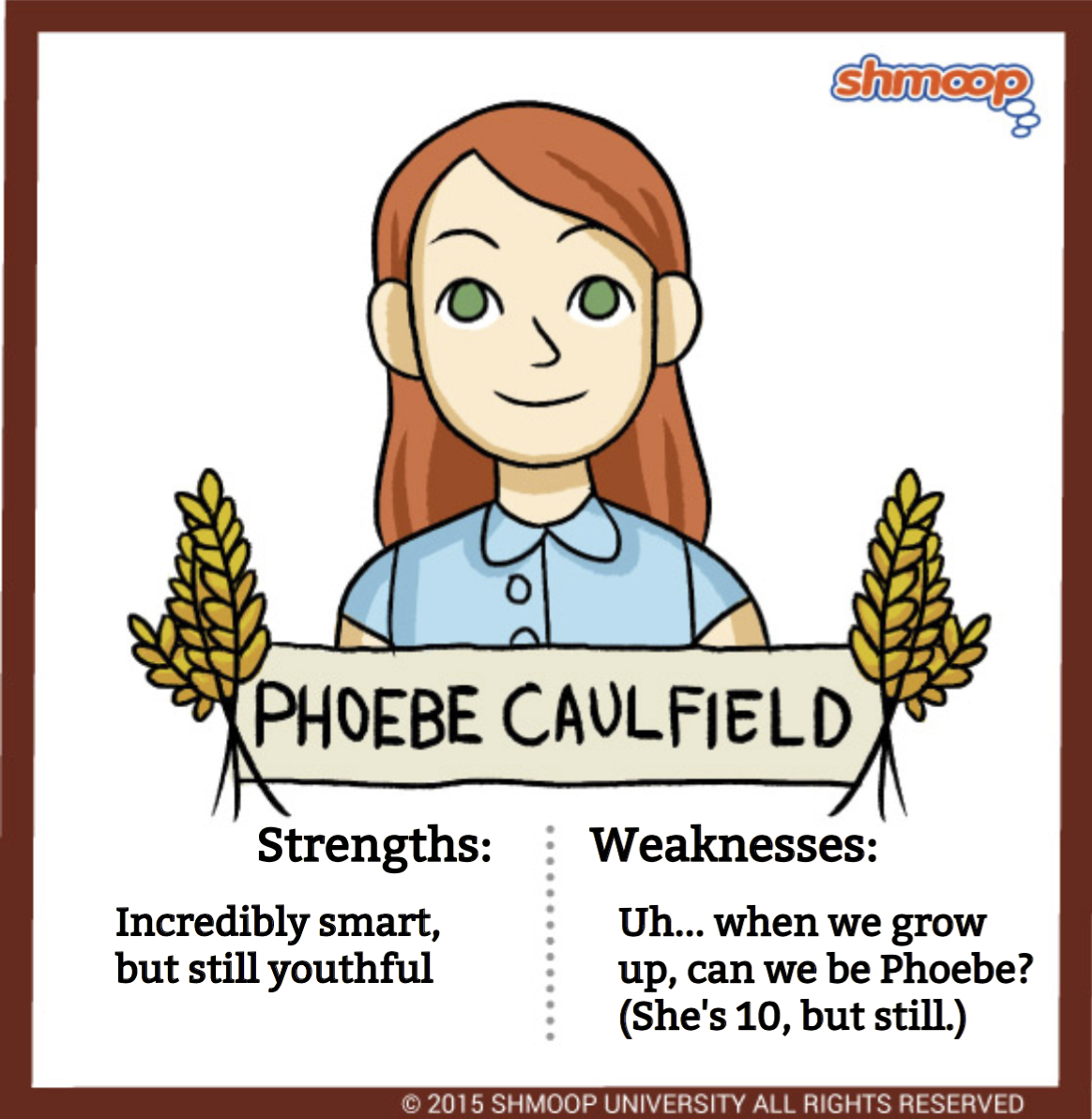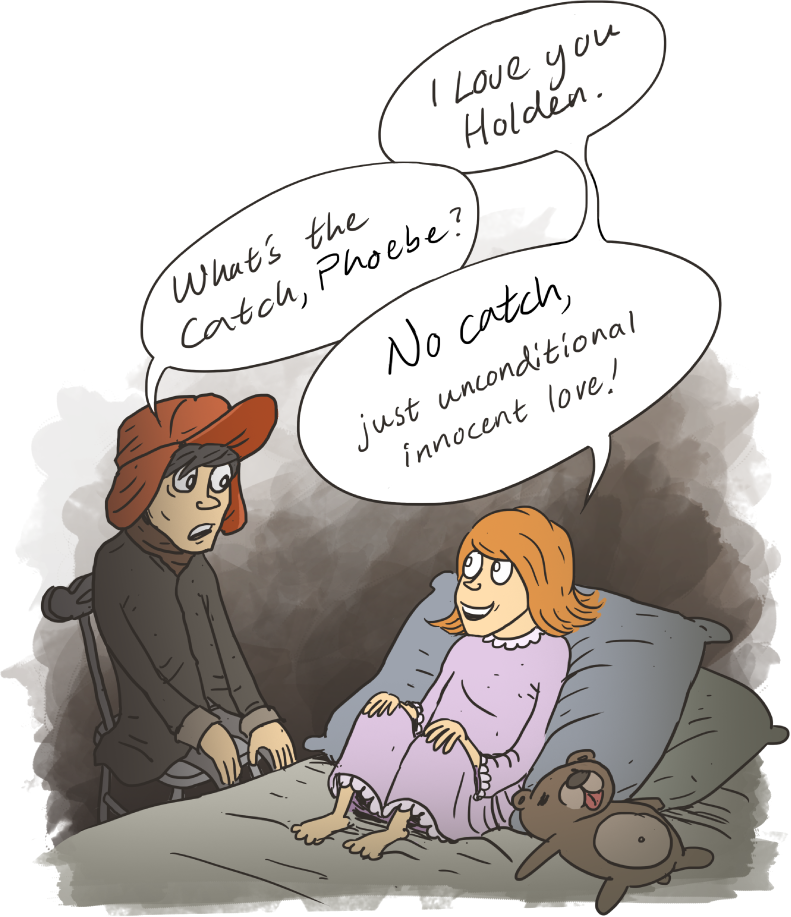Character Analysis

(Click the character infographic to download.)
Phoebe—according to Holden—is not only the smartest kid ever, but also best dancer ever, and the most sympathetic listener ever, and the funniest little sister ever. Check out the way we learn about her:
You'd like her. I mean if you tell old Phoebe something, she knows exactly what the hell you're talking about. I mean you can even take her anywhere with you. If you take her to a lousy movie, for instance, she knows it's a lousy movie. If you take her to a pretty good movie, she knows it's a pretty good movie. (10.3)
Wow. We haven't been this impressed by a pre-teen since Willow Smith.
Girl, Interrupted
When we finally do meet Phoebe, she's basically everything Holden said she would be—while still being authentically ten years old. (Check out how she's scribbled various version of her name in her notebook, and then try us that you didn't do something similar when you were ten. We kept our lists in a Lisa Frank Trapper Keeper.) We do feel the hand of authorial manipulation when Phoebe corrects Holden about Robert Burns, but hey, it was the forties, so maybe kids just knew that stuff back then.
Still, it's this mingling of child-like enthusiasm and adult-like incisiveness that makes Phoebe so compelling. Her notebook entry has exclamation points (child), but she points out to Holden that, really, he doesn't like anything: "You don't like any schools. You don't like a million things" (22.22). She's smart enough to figure out that Holden's gotten the ax again (adult), but responds by putting a pillow over her head and repeating, "Daddy'll kill you" (child).
And then there's her decision to run away with Holden: she packs a suitcase thinking that she'll go out West somewhere and not come back (child), but she's not running away because she hates everyone and everything—she's running away because she seems to think that Holden needs someone to care for him. And then, when Holden refuses to let her come, she takes care of him in her own way, in that touching carousel scene when she puts his red hunting hat back on his head. Unlike any other character we ever see, Phoebe actually gives back. So … adult?

Second Self
The way Phoebe vibrates between acting like a little kid and grown-up reminds us of—yep, Holden himself. It's almost as though Phoebe's a younger version of himself; no wonder he wants to protect her so badly, and no wonder he starts to feel "so damn happy" when he sees her going around and around on the carousel (25).
We do have to ask: what is up with the butt-pinching? When Holden sneaks into Phoebe's room, he reaches out and gives her a "pinch on the behind. It was sticking way out in the breeze … She has hardly any behind" (22.8).
Before you start calling protective services, notice Holden's word: "behind." When he talks about women's behinds—which he actually does fairly frequently—he always calls them "butts" or "asses." And he spends a lot of time admiring Sally Hayes's "cute … little ass" (17). even if he thinks she's phony for twitching it around in front of him. So, when he pinches Phoebe's behind, we get the feeling that it's not sexual at all—in fact, it's almost as though he's reassuring himself (and us) that she's still just a kid.
We know that Holden has a somewhat alarming interest in children, but we're fairly certain that it's not the kind of interest that you'd want to call the police about. He doesn't want to damage their innocence: he wants to protect it, however misguided that is.
